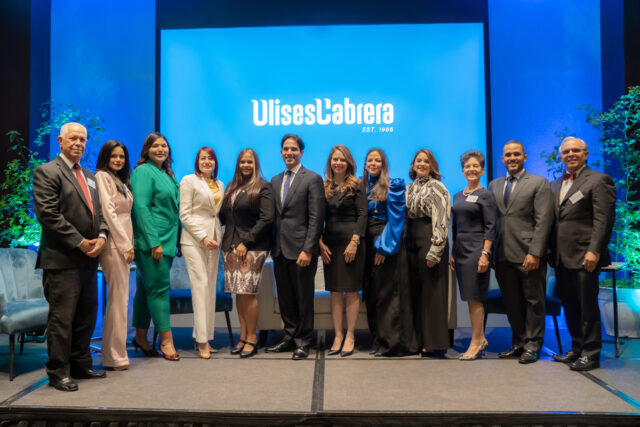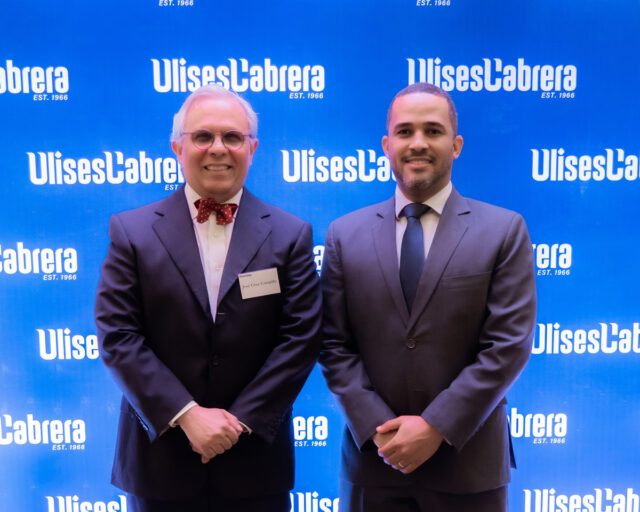Click here to watch the live transmission on Youtube
Santo Domingo. Dominican Republic. With the participation of outstanding experts, the Ulises Cabrera law firm, a pioneer in real estate and tourism issues, held its firs colloquium on judicial boundary-defining and the challenges and perspectives of the new proposed regulation for application of Law No.108-05 on Real Property Registration.
The colloquium discussed new issues in judicial boundary-defining. Until now, this has been executed and approved administratively in non-litigious cases. Now certain modifications to the procedures with the Registry of Real Estate Jurisdiction are expected to be implemented in conjunction with those already existing. Discussion focused on seeking solutions to allow reasonably expedient judicial approvals, including alternative administrative processes for the individualization of larger real properties meeting the appropriate requisites.
The event was honored with a full panel of professionals headed by Ricardo Noboa, Esq., National Director of the Registry of Titles, Ridomil Rojas, Esq., National Director of Land Registry Measurements, the honorable Catalina Ferrera, presiding judge of the Superior Land Court of the East Department. Brenda Morales, Esq., Director of the Technical Agency of CONFOTUR, Diomandy Castillo, Esq., Manager of Training and Formalization and Disbursements of the Asociación Popular de Ahorros y Prestamos (APAP) and Jeanny Aristy Santana, Esq. senior associate and head of the Tourism and Real Property Department at Ulises Cabrera, who served as moderator.
Ricardo Noboa took us through the history of the Law on Real Property Registration, the origin and nature of annotated corroborations, emphasizing the most important milestones and each change in the normative rules for the individualization of real properties backed by annotated corroborations.
“Real Property Jurisdiction authorities have been seeking alternatives to render the processes more viable, because they are aboard this fast-moving business train, racing along and nobody has the time to wait a year for a certificate of title before financing a project, building an apartment complex, establishing a hotel or raising tourist villa projects. It’s impossible. Investors are not going to invest nor are banks going to assume the risk,” said Jeanny Aristy Santana, Esq. regarding the problem of judicial boundaries.
In addition, land surveyor Ridomil Rojas set forth that “strict controls were put into place but unfortunately the perfection of their definition made things impossible, creating the exceptionality of the operation. So, what happens when something is so good it’s not usable? It ceases to have a purpose.”
“Trying to regulate without detrimental affect is an issue of guarantees, that our investors bee sure they can invest in a secure location where their investments are long- and not short-term. We can see how the tourism sector has been affected by all real property issues with respect to regularization. Many hotels established for years in our country have litigious problems with their properties. Surely at this point in time, bringing up a situation that could affect the time and financing of their investment puts us in a complicated situation,” stated Brenda Morales, referring to the development of our country as a tourism destination especially with respect to foreign investments.
The honorable Catalina Ferrera talked about the novel proposal, that the judicial boundary-setting is not the only viable judicial means for individualizing a large property, and must not be viewed as a straightjacket.
Diomandy Castillo, Esq., speaking from the viewpoint of business, banking and financial intermediary institutions noted that judicial boundary-setting is a critical issue due to the need for judicial security and celerity to both exist in the real property processes, while complying with the normative rules and law in the sector.
The event was held under protocols of sustainability as part of the efforts of Ulises Cabrera and its team to mitigate the environmental impact of our operations, within our own installations as well as in external activities, thus contributing to the reduction of our carbon footprint.








On Law No. 108-05 I Real Property Registration
Law No. 108-05 on Real Property Registration has the purpose to regulate the regularization and registration of all real property rights, as well as the liens and encumbrances subject to registration with respect to the real properties making up the territory of the Dominican Republic and to guarantee the legality of the exchange or affecting with the intervention of the State via the competent agencies of the Real Property Jurisdiction.


